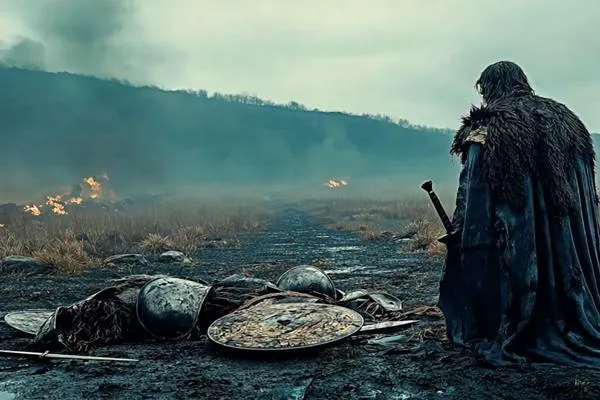
The Trojan
The Trojan is an audit of past relationships, in fact all relationships, that remain immortal in my memory. Some relationships, I acknowledge, contain in their core the human seed of mortality and do not survive to be remembered in isolation but instead become a cluster of remorse or if I am lucky that warm blanket of nostalgia. For many, like me, it is the former. I note, for example, in the passage:
long impulsive years
of mean relational squandering
always looking for
the face of Helen
in the heaving crowd
and crowning her
and others as well
who I knew to be false queens
This observation reflects on past relationships just before reason knocks at the door and enters as a critical friend, who asks not unreasonably ‘what the fuck are you doing?’ This concept of the critical friend is not new. Socrates, the philosopher from ancient Athens, spoke of his inner daemon, which though warning him of potential hazards in the environment, declined to tell him what to do. In tandem then, daemon and devotee, if motivated, have the task to work on and decipher patterns of damaging behaviour, and make us aware that the Helens, human and otherwise, that we are pursuing are just a vapid attempt to experience short gain pleasure, which in effect is the triumph of superficiality over substance. It does also look suspiciously like addiction, which is the minds attempt to avoid personal responsibility by wallowing in chaos . From selfish actions come painful consequences. For example, those who are familiar with the Aeneid know that Aeneas’ wife Creusa gets separated from her family as they attempt escape Troy. Realising she is missing, Aeneas returns to find her, but all he encounters is her ghost as she has been killed. As a metaphor, this is the fallout for those who do not keep close the ones to whom they have pledged their troth. Creusa’s death is the death of the relationship and he is the killer. The ghost is the recrimination, the ‘shade’ of loss that haunts and wanders the memory. But recriminations and regret do not in the main change behaviour and so the destructive cycle continues unabated:
between my head’s twin temples
two armies
wage constant war to
dominate this wild
and windy city
Socrates said that: ‘the unexamined life is not worth living’. I think what he is saying here is that you must accept your daemon and recognise this challenging gift from the gods of evolution, as there can be no evolution without resolution. Knowing the problem is not the same as resolving it. I do however, recognised that it is a good start for the work ahead. Another thing that addicts know only too well is that the real test for any type of redemption is the maintenance phase. There is something about the chaos. It’s like a warm hug. Unfortunately I have found that dissipation lacks stamina and hugs become threadbare and things catch up with you, as old strategies for navigating the world become inadequate and you start to become overwhelmed e.g. when I write:
I have scooped up
onto my weary shoulders
my Anchises
Ah my Anchises. In this section of the Aeneid the Greeks have overrun and begun sacking the city of Troy. There is now only sporadic fighting between the doomed defenders and the victors. Aeneas is trying to escape with his family before it is too late, but his father’s infirmity is slowing them all down so he is forced to carry him. Anchises represents both father and the additions that walk hand in hand with damaged childhoods. This is the chaos that needs addressing.
But there is hope. Aeneas escapes the city of Troy and with his surviving companions, and after more tribulations, arrives at Carthage, where its Queen, Dido, falls passionately in love with him. Despite him knowing that the relationship cannot last they start an affair. Thus his old patterns of behaviour emerge and when he is done with her he conveniently remembers his ‘destiny’ and abandons her with noble regret. She suicides and joins Creusa as yet another ghost in his memory. The message here for backsliders is that the maintenance of ethical behaviour requires close attention and good husbandry.
Human beings, like me, have an infinite capacity to create their own hell by chasing the many faces of Helen in this chaotic life. Virgil describes this beautifully in one of his most famous lines that I quote in the Trojan:
the descent to the underworld is easy
night and day the gates of shadowy death
stand open wide
but to retrace your steps
to climb back to the upper air
there the struggle
there the labor lies
It is easy to descend into the darkness of hell and there like Christ, writhe in that garden of Gethsemane of Troy. The struggle is to rise back into the light.
